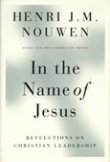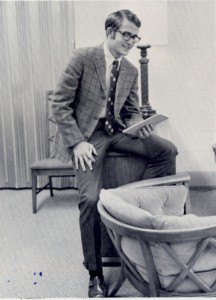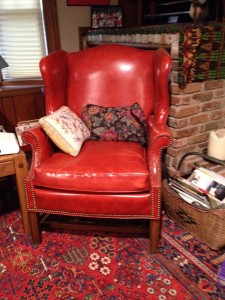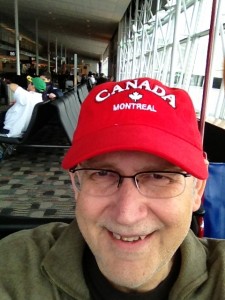Since leaving the hospital in Montreal, I had adopted the meal menu that was provided for me while I was in the Cardiac Care Unit after my heart attack. So, breakfast included a cup of coffee, two slices of whole grain toast with a little orange marmalade or honey. I also had a glass of juice and yogurt or a bowl of cereal would round out my meal. So, on the morning of my first meeting with my new cardiologist, I ate and then took about eight pills and dressed for an early morning appointment.
Jenny drove us to downtown Atlanta to Emory Midtown Hospital at 550 Peachtree Street and dropped at the entrance. We were familiar with the hospital because our son Jed had had corrective jaw surgery there in July of 2012. After she parked the car in the deck and came into the lobby, we made our way to the elevator and to the cardiology department on the sixth floor.
We carried a fat grey envelope of papers and two DVDs from Sacred Heart Hospital. These materials documented my stay and the two angioplasty procedures done by Dr. Thierry Charon. Dr. Guy Lalonde had translated the summary report into English, but everything else was in French. The envelope also included a list of the medicines Dr. Lalonde had prescribed for the next 12 months.
We handed the packet to the check-in person in exchange for several forms and check lists that I had to complete before seeing the doctor. One of the first jarring experiences was checking the “Coronary Artery Disease” box on the “Current Conditions” section. The form asked, “The Reason for My Visit Today?” I answered with, “A heart attack nine days ago.”
Disbelief still rolled around my brain from time to time and I was experiencing a bit of it this morning.
Soon a nurse invited us to an examining room. My weight was down to 196 from the fluid exaggerated 210 that I weighed before being discharged from the hospital in Montreal on Monday.
“Why are you here today?” the nurse asked.
“I had a heart attack last week in Montreal and I need a cardiologist here in Atlanta,” I said.
“Oh! Bless your heart,” she said. “How are you feeling.”
There was that question again. It would often leave me slow to speak as my mind went in a dozen directions as I decided what to say in response. “I’m feeling pretty good, but I have this cough that I think is an allergic reaction to some of the new meds I’m taking.”
“I’m sure Dr. Jaber can help with that,” she said.
My temperature and blood pressure were good at 97.9 and 121/80, respectively.
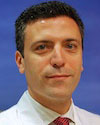 Meeting Dr. Wissam Jaber was enjoyable. He struck me as serious, but not intense with a good sense of humor. Around 40-years-old, I’d guess, wearing a dress shirt and tie under his white jacket, dark trousers and very stylish light brown shoes. I believe I had mentioned before that he was Mediterranean and went to medical school at the American University in Beirut, Lebanon. He also did work at Duke and the Mayo Clinic.
Meeting Dr. Wissam Jaber was enjoyable. He struck me as serious, but not intense with a good sense of humor. Around 40-years-old, I’d guess, wearing a dress shirt and tie under his white jacket, dark trousers and very stylish light brown shoes. I believe I had mentioned before that he was Mediterranean and went to medical school at the American University in Beirut, Lebanon. He also did work at Duke and the Mayo Clinic.
Dr. Jaber said that the Montreal doctors had done a very good job and everything looked good on the two stents that were inserted. He said that two or three other arteries that were marked as 30% blocked were a little “wobbly” but of no real concern and may not even be 30% obstructed. We talked about doing some blood work next week and an echo cardiogram stress test on February 22, 2013, before my six-weeks appointment. He said that at six-weeks the stents should be well connected in my arteries, but that I needed to stay on the blood thinner Effient® for twelve months.
He said that the benazepril in one of the blood pressure meds was causing my cough and he would change my prescriptions to alleviate the problem. He said that it could take 2-4 weeks to get it out of my system. He asked me to take my BP at home twice a day for a week and call his nurse Randy with a report to verify that the dosage was correct. Also, I should continue to take the fluid pill for a few more weeks, but my lungs appeared clear today.
I felt well cared for. Hearing confirmation of the treatment I received in Montreal and the likelihood of ending my cough by changing two of my meds gave me peace of mind and spirit. With Jenny there being able to ask questions and hear what I was hearing was an added comfort. All of this was also reminding me that God’s mercy was specific and his love was patient and kind. He would sustain me as days of light and dark would follow in the future. And I was realizing that my acceptance of this new reality would take many weeks to settle in.
Jenny and I walked to the hospital coffee shop and had a cup of Joe and shared a bagel. We reviewed what we had heard and made sure that we were in sync regarding next appointments and early rehab – which primarily meant rest.
I waited in the lobby while Jenny walked to the parking structure to get the car. She met me at the door and drove us to the pharmacy and then home.
